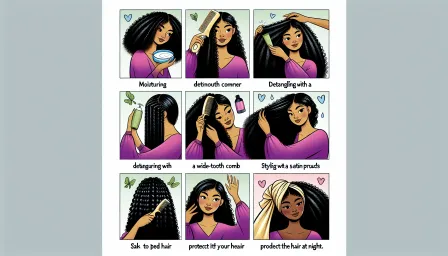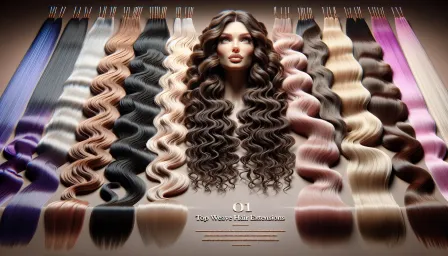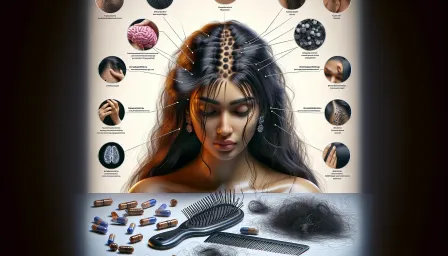Top 10 Dry Scalp Care Tips for Winter: Keep Your Scalp Healthy and Hydrated

Top 10 Dry Scalp Care Tips for Winter: Keep Your Scalp Healthy and Hydrated. Discover expert tips to manage and prevent dry scalp issues in the colder months.
Winter can be harsh on your skin, including your scalp. The combination of cold outdoor air and dry indoor heating can lead to an itchy, flaky, and dry scalp. In this article, we will provide you with the top 10 dry scalp care tips for winter to help keep your scalp healthy and hydrated. Follow these expert tips to address and prevent dry scalp issues during the colder months.
The Importance of Scalp Health
A healthy scalp is crucial for overall hair health. When your scalp is dry, it can lead to itching, flaking, and even hair loss. By taking proactive steps to care for your scalp, especially in the winter, you can maintain healthier hair and avoid common issues associated with dry scalp.
1. Use a Moisturizing Shampoo
One of the most effective dry scalp care tips for winter is to switch to a moisturizing shampoo. Look for shampoos that contain hydrating ingredients such as aloe vera, glycerin, and natural oils. These ingredients can help retain moisture and prevent dryness.
2. Condition Regularly
In addition to using a moisturizing shampoo, make sure to use a conditioner every time you wash your hair. Conditioners help seal in moisture and provide a protective barrier against the drying effects of winter weather. Focus on applying conditioner to the scalp and roots.
3. Avoid Hot Water
While a hot shower might feel great on a cold day, it can strip your scalp of its natural oils, leading to dryness. Opt for lukewarm water when washing your hair to keep your scalp hydrated and healthy. This is a simple yet effective dry scalp care tip for winter.
4. Use a Humidifier
Indoor heating systems can create a dry environment that affects your skin and scalp. Using a humidifier can add moisture to the air, helping to keep your scalp from drying out. This is especially important if you spend a lot of time indoors during the winter months.
5. Limit the Use of Heat Styling Tools
Heat styling tools such as blow dryers, straighteners, and curling irons can further dry out your scalp. Try to limit their use and always apply a heat protectant spray before styling to minimize damage. Allow your hair to air dry when possible to maintain moisture.
6. Incorporate Scalp Massages
Regular scalp massages can enhance blood circulation and promote natural oil production, keeping your scalp moisturized. Use gentle, circular motions with your fingertips to massage your scalp for a few minutes each day. This can also help reduce stress and promote overall scalp health.
7. Apply Natural Oils
Natural oils like coconut oil, jojoba oil, and olive oil can provide deep hydration to your scalp. Apply a small amount of oil to your scalp and massage it in. Leave it on for at least 30 minutes or overnight for maximum benefits. This is an effective remedy for combating winter dryness.
8. Use Anti-Dandruff Treatments
If your dry scalp is accompanied by dandruff, consider using an anti-dandruff shampoo or treatment. Look for products containing ingredients like zinc pyrithione or ketoconazole, which can help control dandruff and soothe your scalp.
9. Stay Hydrated and Eat a Balanced Diet
Hydration starts from within. Ensure you are drinking enough water throughout the day to keep your scalp and skin hydrated. Eating a balanced diet rich in vitamins and minerals, such as Omega-3 fatty acids, can also support scalp health and prevent dryness.
10. Protect Your Scalp from the Elements
Exposure to cold and wind can exacerbate scalp dryness. Wear a hat or scarf to protect your head when spending time outdoors. Choose breathable fabrics to avoid trapping moisture and causing further irritation.
Conclusion
By following these top 10 dry scalp care tips for winter, you can maintain a healthy and hydrated scalp throughout the colder months. Remember to use moisturizing products, avoid excessive heat, and protect your scalp from harsh weather conditions. With a little extra care, you can prevent dryness, itching, and flaking, ensuring your scalp remains in optimal health.



























